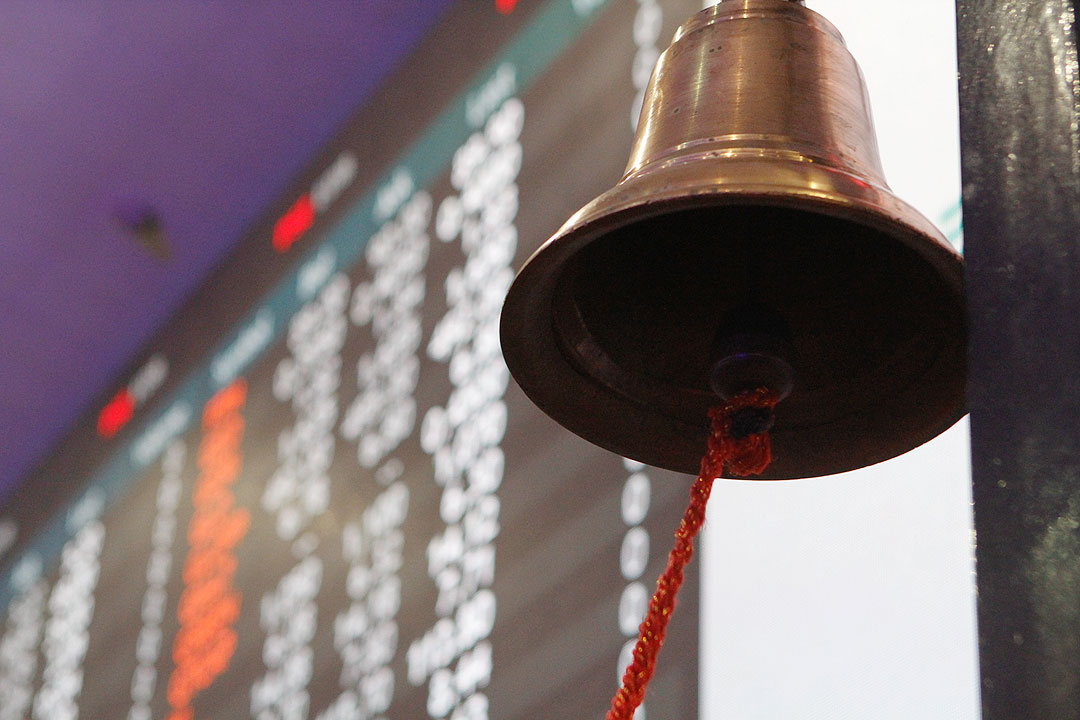Technology
PSEi sinks to seven-month low on selling pressure
PHILIPPINE STOCKS closed lower on Monday due to selling pressure and as the peso weakened further against the dollar.
The benchmark Philippine Stock Exchange index (PSEi) fell by 0.9% or 54.26 points to close at 5,933.76, while the broader all shares index dropped by 0.73% or 26.38 points to 3,581.73.
This was the PSEi’s worst finish in nearly seven months or since it closed at 5,822.85 on April 7.
“The market continued to track lower following last week’s breach below the key resistance at 6,000,” AP Securities, Inc. said in a market note on Monday.
“The Philippine market declined by nearly 1% as selling pressure persisted throughout the trading session. The depreciation of the Philippine peso against the US dollar continued to make investors trade cautiously,” Regina Capital Development Corp. Head of Sales Luis A. Limlingan said in a Viber message.
On Monday, the peso plunged by 27.50 centavos to close at P58.90 against the dollar from P58.625 on Friday, data from the Bankers Association of the Philippines’ website showed, extending its losing run to an eighth consecutive session.
This was an over 10-month low for the peso as this marked its weakest showing since it finished at P59 on Dec. 19, 2024, which was also its record low.
“Moreover, the release of some companies’ earnings also influenced today’s market performance,” Mr. Limlingan added.
Listed companies that released their financial results on Monday included lenders BDO Unibank, Inc., Union Bank of the Philippines, Inc., and Philippine National Bank.
All sectoral indices closed in the red. Mining and oil sank by 2.87% or 378.24 points to 12,796.37; services dropped by 1.25% or 28.80 points to 2,272.66; financials fell by 1.08% or 21.3 points to 1,948.20; industrials went down by 0.78% or 69.86 points to 8,796.55; property retreated by 0.76% or 16.87 points to 2,198.93; and holding firms decreased by 0.53% or 26.06 points to 4,804.82.
Market breadth was negative as decliners overwhelmed advancers, 131 to 55, while 59 issues were unchanged.
Value turnover went down to P18.77 billion on Monday with 11.82 billion shares changing hands from Friday’s P26.28 billion with 2.89 billion issues traded.
Net foreign selling decreased to P313.66 million on Monday from P648.37 million on Friday.
Meanwhile, global stocks bounced on Monday as signs of cooling trade tensions between China and the US encouraged investors, Reuters reported. Top Chinese and US economic officials on Sunday hashed out the framework of a trade deal for US President Donald J. Trump and his Chinese counterpart Xi Jinping to decide on later this week at a meeting in South Korea.
That sent stocks sharply higher in Asia, with indexes in South Korea, Taiwan and Japan hitting record highs. The upbeat mood spread to Europe, where shares rose modestly across the board, leaving the STOXX 600 up 0.1% around record highs. — A.G.C. Magno with Reuters
PHILIPPINE STOCKS closed lower on Monday due to selling pressure and as the peso weakened further against the dollar.
The benchmark Philippine Stock Exchange index (PSEi) fell by 0.9% or 54.26 points to close at 5,933.76, while the broader all shares index dropped by 0.73% or 26.38 points to 3,581.73.
This was the PSEi’s worst finish in nearly seven months or since it closed at 5,822.85 on April 7.
“The market continued to track lower following last week’s breach below the key resistance at 6,000,” AP Securities, Inc. said in a market note on Monday.
“The Philippine market declined by nearly 1% as selling pressure persisted throughout the trading session. The depreciation of the Philippine peso against the US dollar continued to make investors trade cautiously,” Regina Capital Development Corp. Head of Sales Luis A. Limlingan said in a Viber message.
On Monday, the peso plunged by 27.50 centavos to close at P58.90 against the dollar from P58.625 on Friday, data from the Bankers Association of the Philippines’ website showed, extending its losing run to an eighth consecutive session.
This was an over 10-month low for the peso as this marked its weakest showing since it finished at P59 on Dec. 19, 2024, which was also its record low.
“Moreover, the release of some companies’ earnings also influenced today’s market performance,” Mr. Limlingan added.
Listed companies that released their financial results on Monday included lenders BDO Unibank, Inc., Union Bank of the Philippines, Inc., and Philippine National Bank.
All sectoral indices closed in the red. Mining and oil sank by 2.87% or 378.24 points to 12,796.37; services dropped by 1.25% or 28.80 points to 2,272.66; financials fell by 1.08% or 21.3 points to 1,948.20; industrials went down by 0.78% or 69.86 points to 8,796.55; property retreated by 0.76% or 16.87 points to 2,198.93; and holding firms decreased by 0.53% or 26.06 points to 4,804.82.
Market breadth was negative as decliners overwhelmed advancers, 131 to 55, while 59 issues were unchanged.
Value turnover went down to P18.77 billion on Monday with 11.82 billion shares changing hands from Friday’s P26.28 billion with 2.89 billion issues traded.
Net foreign selling decreased to P313.66 million on Monday from P648.37 million on Friday.
Meanwhile, global stocks bounced on Monday as signs of cooling trade tensions between China and the US encouraged investors, Reuters reported. Top Chinese and US economic officials on Sunday hashed out the framework of a trade deal for US President Donald J. Trump and his Chinese counterpart Xi Jinping to decide on later this week at a meeting in South Korea.
That sent stocks sharply higher in Asia, with indexes in South Korea, Taiwan and Japan hitting record highs. The upbeat mood spread to Europe, where shares rose modestly across the board, leaving the STOXX 600 up 0.1% around record highs. — A.G.C. Magno with Reuters




